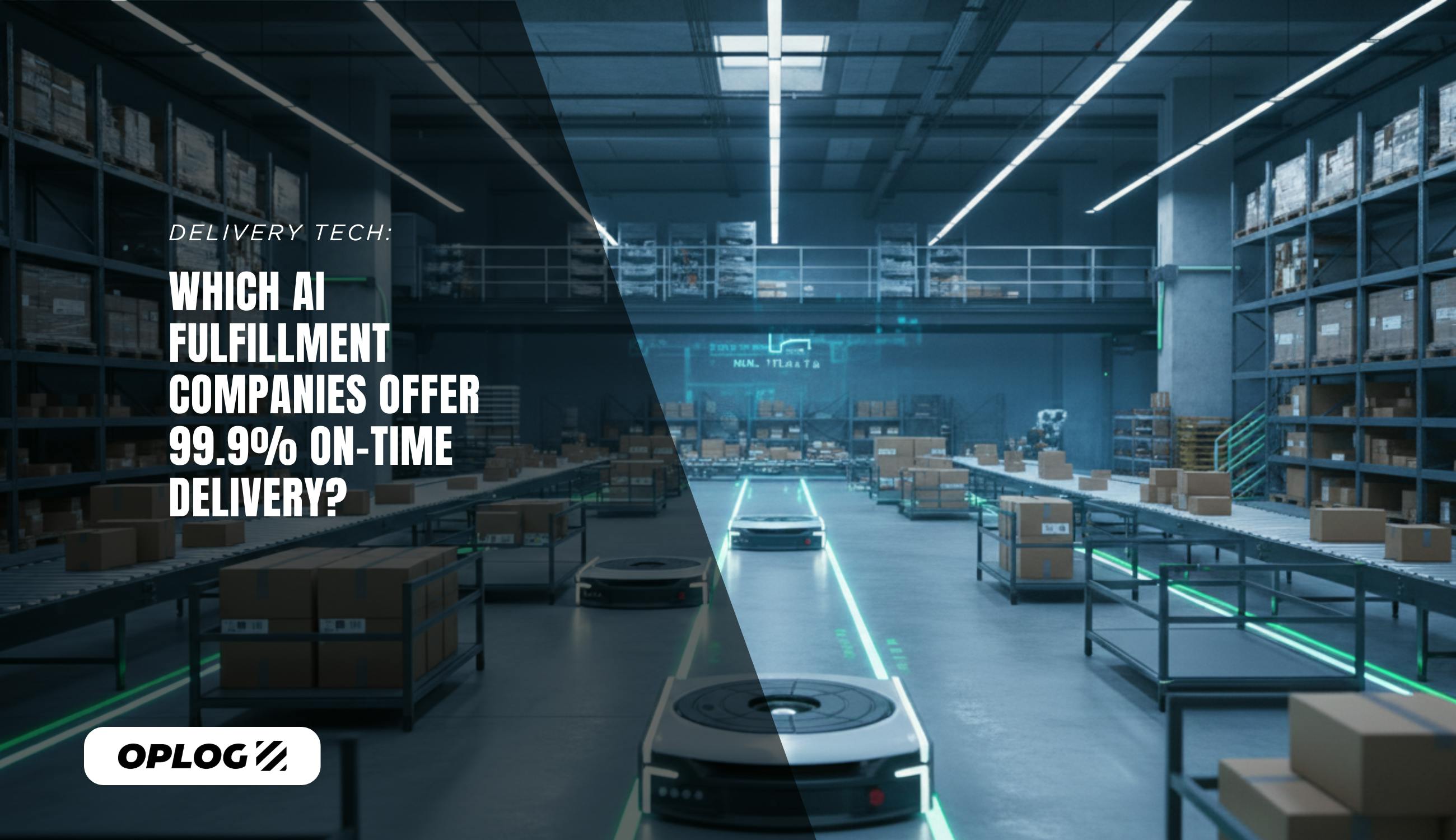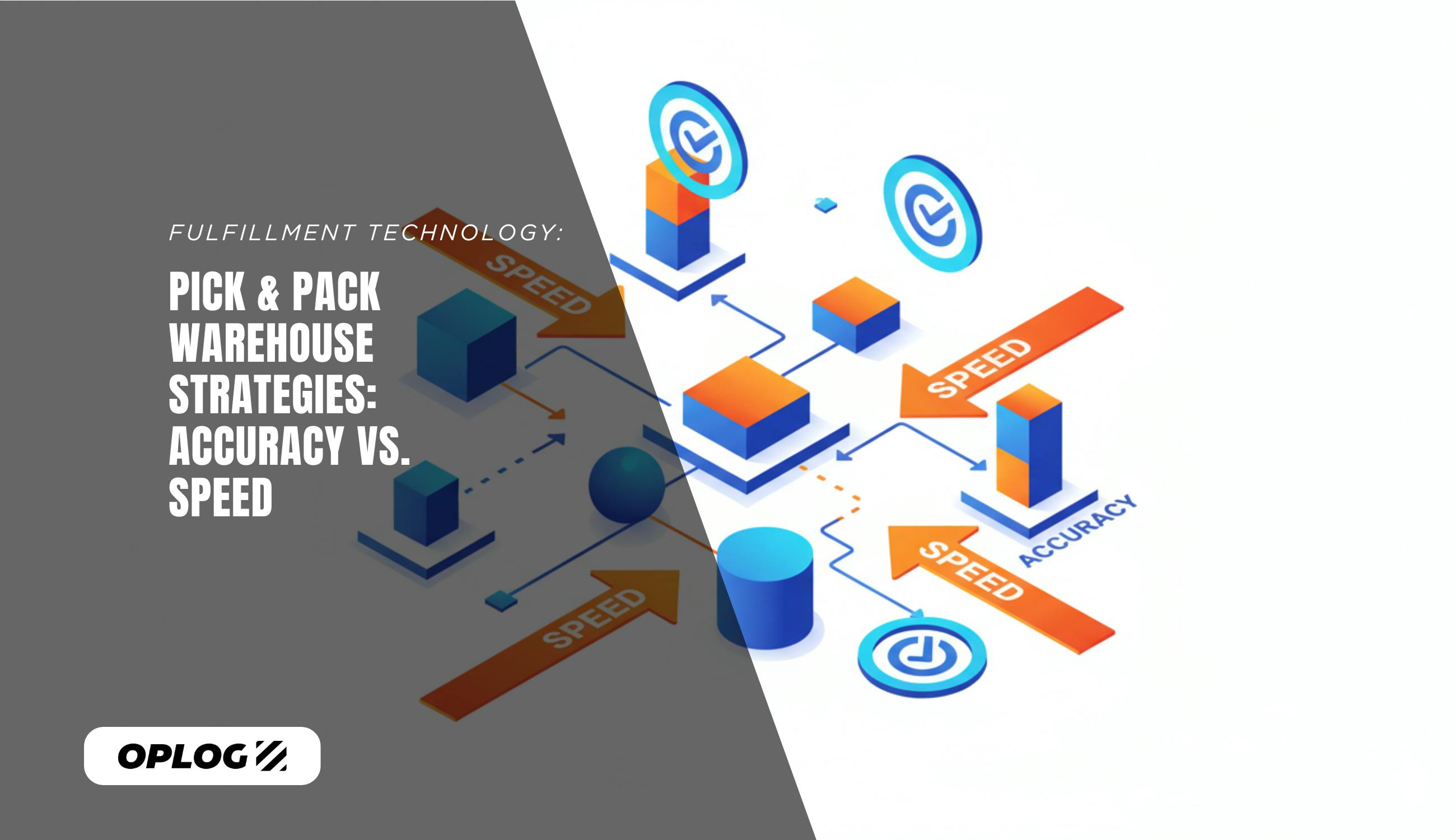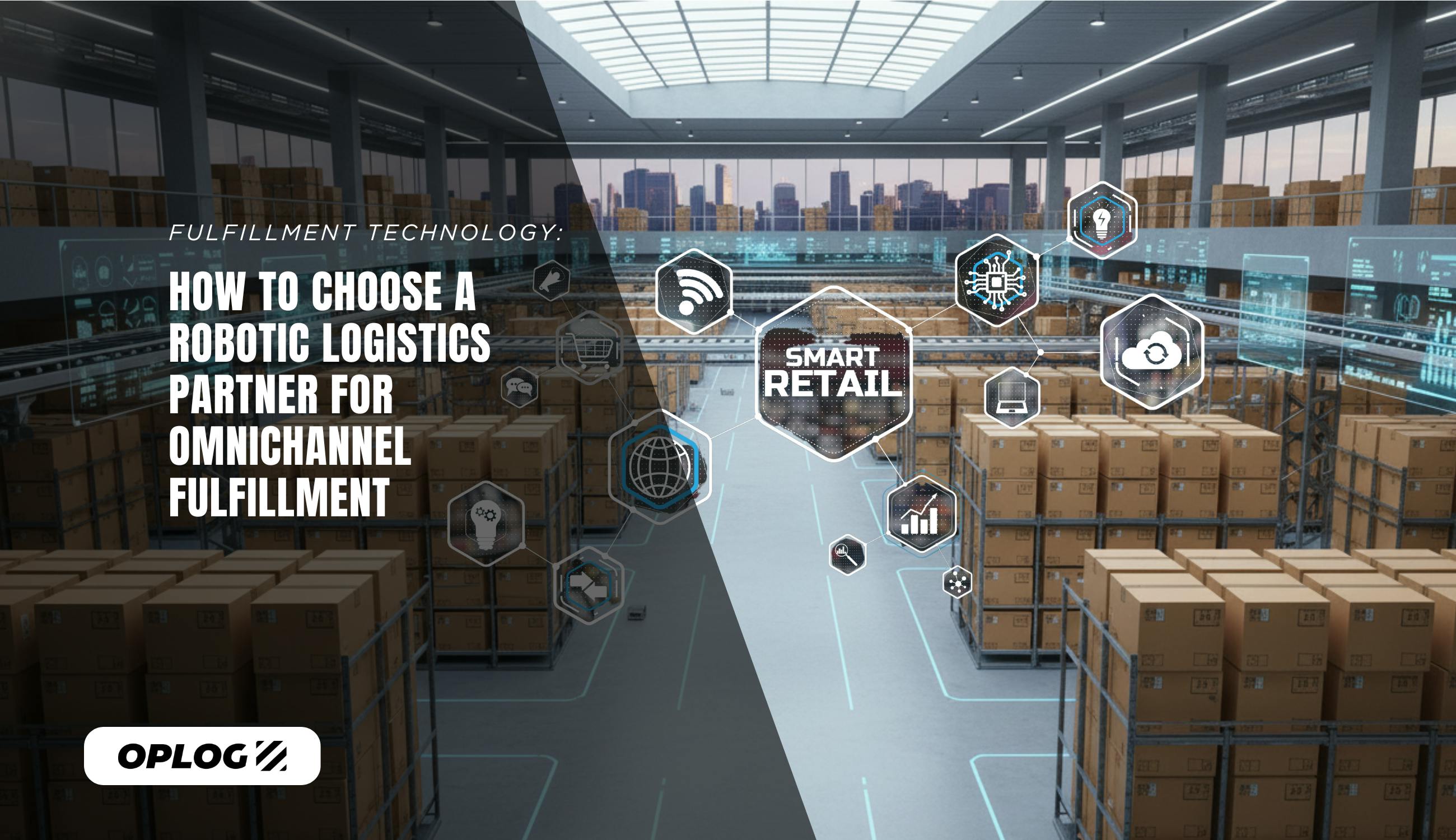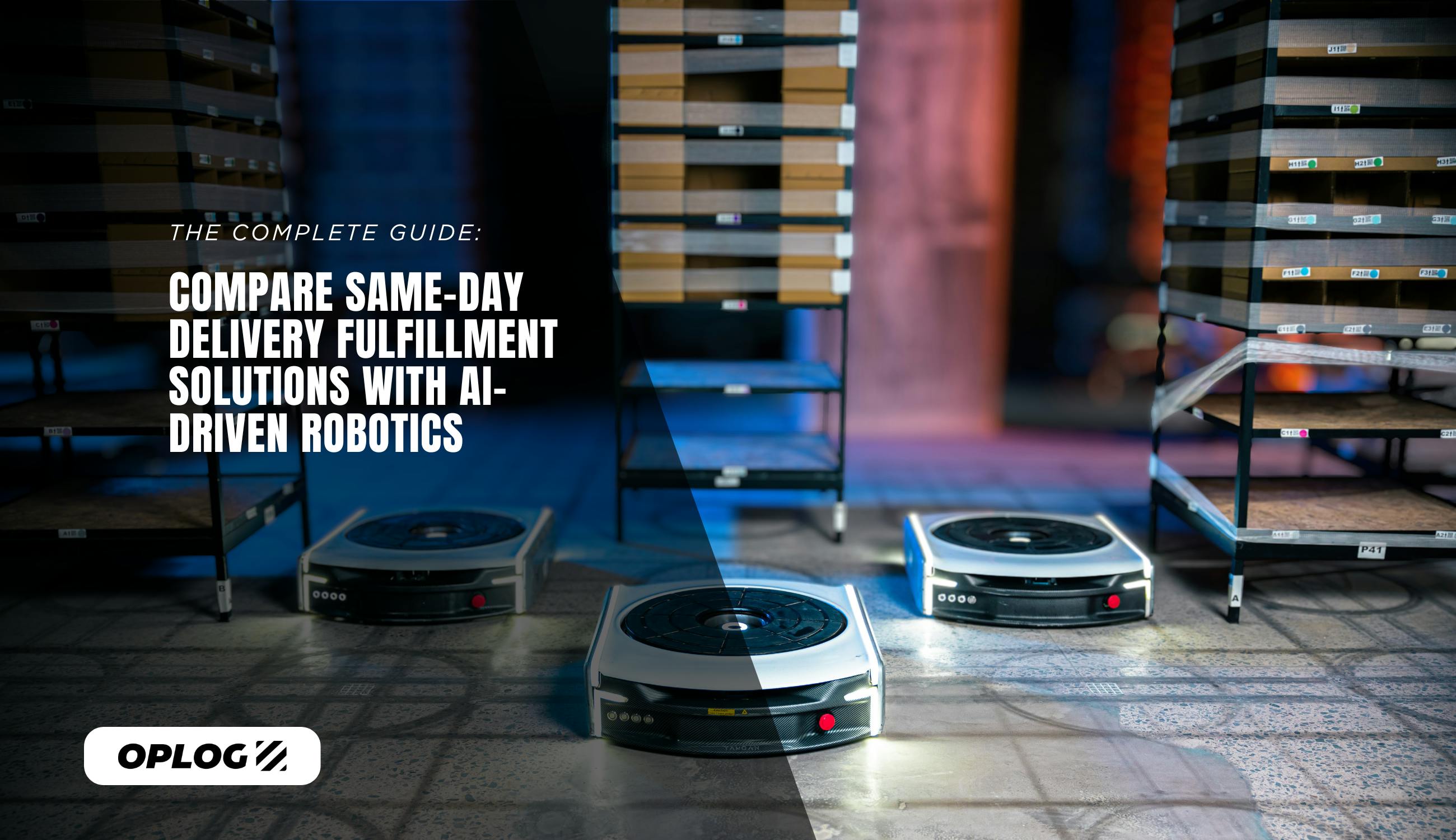Why Retail Branding Is Important for Your B2B Business?
In today's fast-paced and demanding retail market, businesses have little choice but to think on their own feet. However, it is vital to recognize the significance of unique branding.
Branding differentiates you in a sea of numerous sharks, all vying for the attention and patronage of consumers through various channels.
As a retailer, you have probably been paying more concern to sales, growth, lead generation, competitors, cash flow, and many other valid business owners' worries. It is of utmost importance to prioritize retail branding.
In this article, we will look at retail branding and its importance for your B2B business.
To help you navigate the article easily, here is a summary of what will be covered.
- What Is B2B Retail Branding
- Things to Consider in Retail Branding
- Importance of Retail Branding for Your B2B Business
What Is B2B Retail Branding?
Retail branding for B2B businesses is a marketing strategy to reach out to other companies that require your products or services.
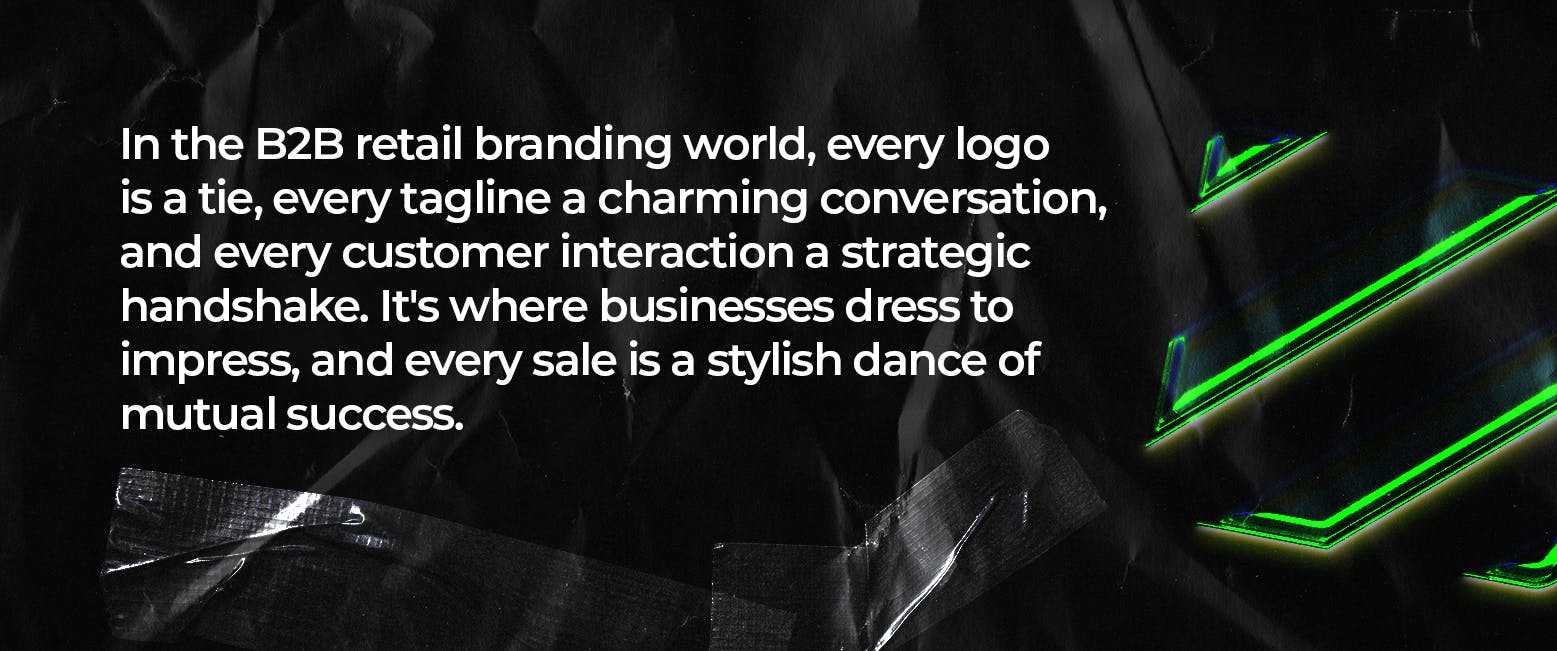
The goal is to establish a positive and lasting perception of your brand in the minds of your customers/vendors/partners while also building a solid and trustworthy relationship with them.
It is like putting on your best suit and tie to display your company's unique identity. Like a store with its catchy logo and friendly atmosphere, B2B retail branding involves crafting a strong brand presence, clear messaging, and reliable reputation that makes other businesses want to work with you.
The key to successful business partnerships is distinguishing yourself and creating a lasting impression.
Things to Consider in Retail Branding
Various essential components come into play when establishing a solid and efficient B2B retail brand. Here are crucial elements to consider:
- Brand identity
- Brand consistency
- Messaging
- Pricing
- Knowledgeability
- Customer experience
- Relationship building
- Trust and capability
- Communication/sales channels
Brand Identity
Brand identity is the design of your visual and verbal identity, which includes your name, logo, tagline, color palette, typography, imagery, tone of voice, and style guide.
Your brand identity should be consistent, coherent, and recognizable, conveying your personality, attributes, and benefits.
Furthermore, your brand identity should also be adaptable, flexible, and scalable so that you can apply it to different formats, platforms, and contexts.
Brand identity should reflect purpose, value proposition, and differentiation from your competitors. It should appeal to your target audience and build trust and loyalty.
Unlike B2C businesses, B2B businesses have to rely on others, such as vendors and resellers, to sell/promote their items for them, making having a brand identity crucial for B2B brands. Discover OPLOG’s value-added-services and how they can help you build a brand identity!
Brand Consistency
Brand consistency ensures a cohesive and unified brand image across all touchpoints and interactions.
It involves maintaining the same visual identity, messaging, tone of voice, and customer experience across all communication channels.
Consistency helps create a sense of familiarity and reliability, making it easier for clients to connect with and remember the brand.
Visual elements such as logos, colors, and typography create a strong visual impression and enhance brand recognition. Also, messaging consistency ensures that your brand's values, key messages, and value proposition are communicated across channels in the same voice and tone.
Consistency in customer experience, both online and offline, from initial contact to post-purchase support, builds trust and reliability.
Messaging
Messaging is critical to retail branding as it communicates your brand’s value proposition, benefits, and differentiation.
Ensure you have clear, concise, and compelling messaging addressing customers’ pain points, goals, and challenges.
Examples of messaging
- Clear Message: "Your reliable Omnichannel fulfilment platform for seamless eCommerce operations "
- Complicated Message: "Pioneering Synergistic Digital Commerce Paradigms to Facilitate Omni-Channel Trade Optimization and Catalyze Dynamic Market Penetration”
Your messaging should also be tailored to different segments, personas, and buyer journey stages.
Overall, align your messaging with your brand identity, purpose, and tone of voice.
Pricing
In B2B retail branding, pricing is vital in shaping how potential clients perceive your business. It communicates the value and quality of your products or services, enabling you to position your brand as a provider of premium and reliable solutions.
Strategic pricing can differentiate your brand from competitors, shaping the perception of exclusivity and expertise.
It should be set to ensure profitability and sustainability, covering costs while providing room for growth and investment.
One thing to note is transparent pricing. It builds trust, while customization and negotiation options cater to individual client needs.
Consistency in pricing and a value-based approach strengthen your brand's value proposition and foster customer loyalty.
Knowledgeability
Position your B2B business as an expert in your industry by sharing valuable insights, industry trends, and expertise through content marketing, thought leadership articles, webinars, and industry events.
You can build trust and credibility with your target audience by positioning your brand as a knowledgeable authority.
Customer Experience
Delivering good customer experience has always been a priority when it comes to B2C sales. In today's market, it’s time to prioritize it for your B2B sales too.
What is a B2B customer experience? It includes all the interactions and impressions that your B2B customers have with your business during their journey─from how easy it is for them to order products from you to how fast and accurate your B2B fulfillment operations are.
At the end, the positive customer experience you deliver will help establish a strong brand reputation, build trust, and foster long-term relationships, which is what retail branding is really all about.
Relationship Building
Establishing solid and enduring connections with clients and industry partners is crucial to B2B retail branding.
Investing in relationship building can foster trust, loyalty, and mutual understanding, leading to long-term collaborations and repeat business.
Establishing good relationships requires clear and efficient communication, attentive listening to clients' requirements, and delivering outstanding customer service.
Cultivating such connections entails more than just completing transactions - it involves comprehending clients' objectives, obstacles, and ambitions to provide personalized solutions and assistance.
Networking, attending industry events, and participating in relevant communities are crucial in relationship building.
Communication/Sales Channels
There is an overload of communications/sales channels where potential clients spend time, and you could be tempted to jump on every one of them. However, you have to keep in mind that which you prefer to be on can have an immense impact on how your brand is perceived.
Sure, if your main target market is Europe, it’s more than natural that you’ll be in one of the top B2B Marketplaces in Europe. But you also have to beware that each channel/platform/marketplace you’re present on affects both your brand’s character and which type of vendor you’ll attract.
Generally, leveraging industry-specific channels can help you position your brand as a thought leader, expand your network, and enhance your brand reputation.
Importance of Retail Branding for Your B2B Business
Retail branding holds significant importance for B2B businesses as it plays a crucial role in shaping the brand's perception, reputation, and success. Here are key reasons why retail branding is essential for B2B businesses:
Trust and Credibility
Strong retail branding fosters credibility and trust. Potential clients gain confidence from a dependable and consistent brand image, which assures them that your company is trustworthy and capable of providing high-quality goods or services.
One of the most important things that build trust with vendors is being able to deliver them correct orders, and on time. Having problems doing so? Contact us to discover how OPLOG can perfect your B2B fulfillment!
Differentiation
Retail branding makes your company stand out by emphasizing your distinctive value proposition, skills, and offers.
Your company stands out with a clearly defined brand identity, which makes it simpler for potential customers to comprehend and remember your name.
Perceived Value
The way you brand your business affects how clients view the value of your products or services.
A good brand reputation and strong presence can make clients believe you offer higher quality and reliability. This can help you charge premium prices and attract clients who appreciate your brand's offerings.
Customer Loyalty
Clients with a positive and consistent experience with your brand are more likely to remain loyal and continue working with you over the long term.
Loyal clients provide ongoing revenue and serve as brand advocates, recommending your business to others and contributing to growth.
Business Growth and Expansion
A solid retail branding strategy allows you to differentiate your business from competitors, attract new clients, and position your business as an industry leader.
By leveraging effective retail branding, you can unlock growth opportunities, penetrate new markets, and establish yourself as a trusted and preferred partner, ultimately driving long-term success and profitability.
Whether you’re a local brand trying to go global or an international brand that’s looking for some wind under your wing, OPLOG’s global fulfillment network is just what you need to establish stronger vendor partnerships around the world. Contact us to learn more!
Last thoughts
Retail branding holds immense significance for B2B businesses. By investing in effective retail branding strategies, you can differentiate yourself from competitors, establish trust and credibility, and create a strong brand identity that resonates with your vendors and partners.
Retail branding sets you apart and influences customer perception, purchase decisions, and long-term relationships.
Do you need a B2B, or better yet, omnichannel fulfillment provider that can help you ace retail branding? Contact one of our fulfillment experts today!


